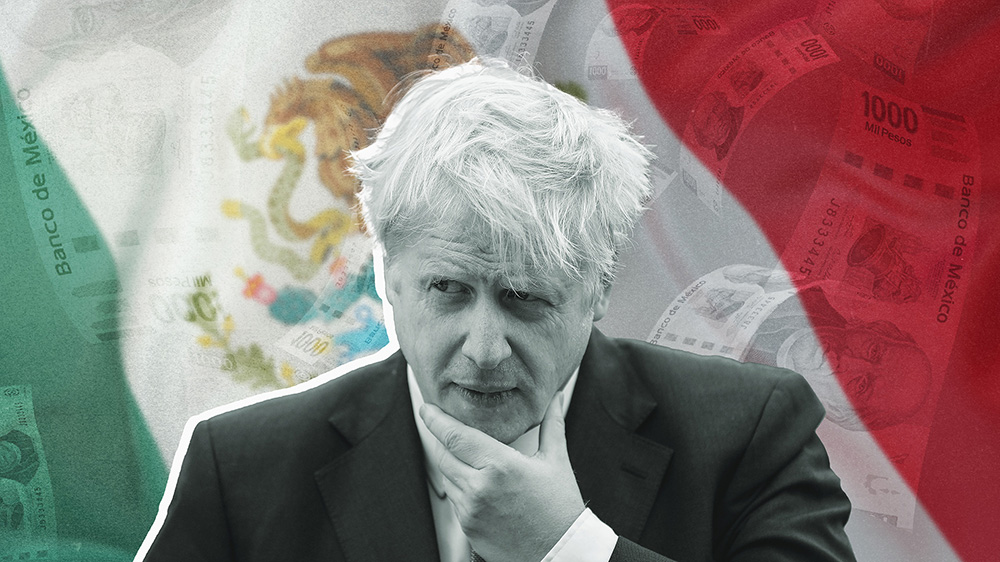Nigel Farage and I don’t have too much in common beyond liking a pint and a cigar. Yet I now discover a link: we are both PEPs, or ‘politically exposed persons’. Such a handle may not be a total surprise to Nigel. (He may not have been surprised, either, when Coutts said that it had closed his bank account simply because he didn’t have enough funds.) But it certainly was to me – especially as I found out from an official at the bureau de change in the baggage hall of Mexico City airport.
As I proffered a couple of grubby $100 bills to change to pesos, I filled in a short form – name, address etc – then noticed the cashier looking quizzically at my passport. He called over a supervisor. My passport was analysed by a machine. After a few buzzes, bleeps and whirrs, a new form, almost identical to the first, was presented. But as I laboriously listed once again the address of my hotel, I noticed there was an additional question at the bottom. Was I a politically exposed person, it asked.
As Basil Fawlty’s Manuel might say: ‘Qué?’ There was, after all, no explanation of what that might actually mean. No definition of what such a person might look like. Surely anyone bored daily by the Today programme or a slave to the births and deaths column in the Times could claim to be, at least to some extent, politically exposed.
Clearly that was not my Mexican friend’s line of inquiry. But as a man in his seventies – an OAP PEP perhaps – surely I couldn’t be too much of a threat to the government of President Andrés Manuel Lopéz Obrador. After all, my $200 was not going to buy many armed-to-the-teeth banditos, given that they are fearfully tied up with the hideously complex logistics of cocaine trafficking, and I am not that good on stairs.
No, it was obvious this was personal. My passport revealed it. They had something specifically on me. But what exactly?
Well, I thought, I had a great-grandfather who sat for the Liberals under Gladstone. My brother fought the seat of Edmonton in October 1974, and was duly crushed by the TGWU candidate. My wife Rachel Johnson had been equally humiliated by that pantomime dame, Ann Widdecombe, when she auditioned for the slapstick role of MEP for South West England on behalf of Change UK (we always pronounce the ‘Change’ in the French way, to rhyme with blancmange).
Oh yes, and for lack of anything else to do, I was the first, very short-lived director of Best for Britain, another tragicomic effort to put right a political error committed by my misguided brother-in-law Boris. But now I was surely innocent, a mere Sunday painter and amateur gardener, more preoccupied with the lack of spring rain than the balance of payments. So it was with confidence that I answered the question with a firm: ‘No.’
A dark frown spread across the manly brow of the supervisor, who returned to his computer, perused the data strip in my (still burgundy) passport one more time and said, with infinite good manners, but brooking no contradiction: ‘I am afraid our computer says you are. We cannot change your money.’
And then I finally understood. Yet another fine thing Boris has got me into. Not only must I forever shrink in my chair at fashionable dinner parties insisting like Cain (or was it Abel?) that ‘I am not my brother’s keeper’. I must now dodge the money-changers in the temples. The sins of the brothers-in-law, it seems, will always be with me, heaped upon my head at the exchange counters of the globe. Even the usurious clerks of Travelex, the ultimate pharisees of our times, will decline to do business with me. There will be an assumption that the $200 I proffer has been snitched from the No. 10 petty cash tin.
‘Don’t worry,’ said the kindly cashier, spotting my consternation. ‘We are a government exchange bureau. Any of the ones outside in the arrival hall will happily take your money.’
Funny peculiar, really. But I do think that Thomson Reuters, who I hear used to make a tidy profit flogging dog-eared information from their cuttings to the world’s border guards, should be accountable – or perhaps some other free-enterprise data snitch.
If we can legally check our credit ratings, surely the same should be applicable to our relative political radioactivity? Or is that a state secret not to be shared? All I know is someone seems to have been messing with the data strip in my passport – my soon-to-be-surrendered last link to the long-lost European empire over the sea.






Comments